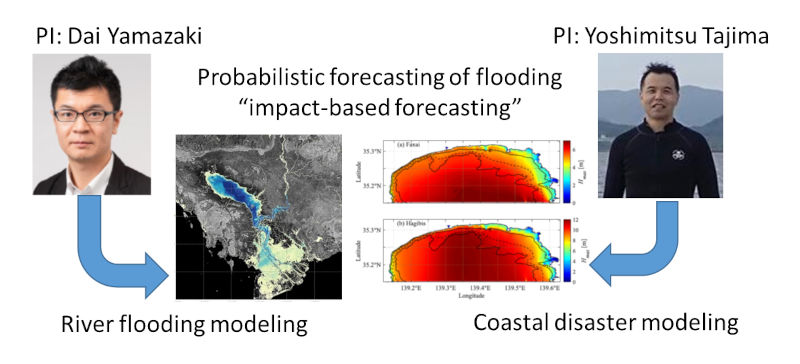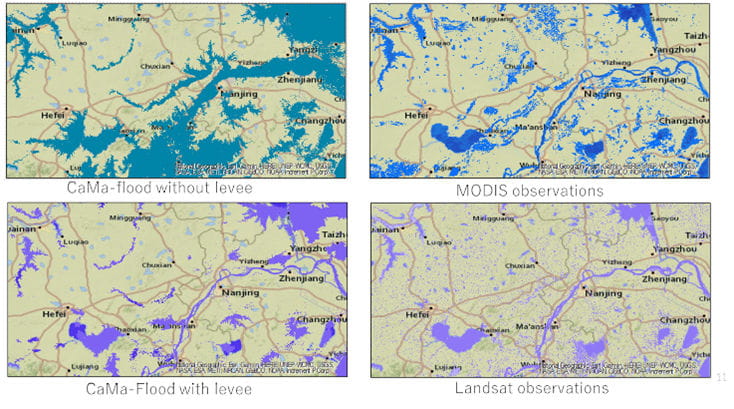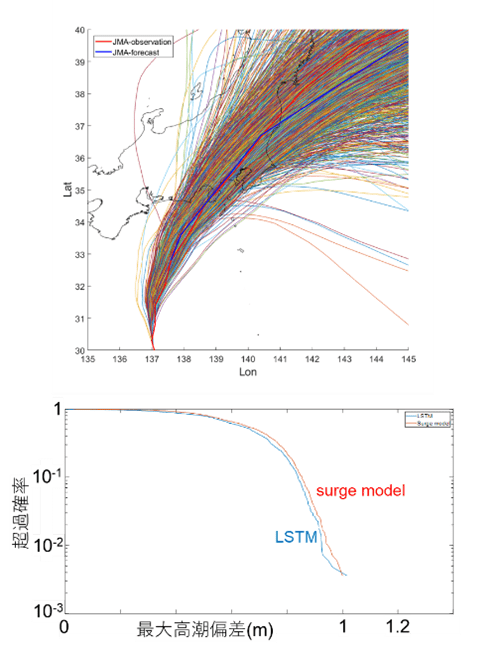Progress Report
Control Theory of Weather-Society Coupling Systems for Supporting Social Decision-Making[B-1] Integrated probabilistic forecasting of combined flooding hazards
Progress until FY2024
1. Outline of the project
- Background:
- To evaluate the effectiveness of weather control, it is insufficient to check the change of meteorological variables, such as intensity of tropical cyclones. It is crucial to estimate how changes in meteorological disasters affect on society, which is called “impact-based forecasting”. In the realm of impact-based forecasting, the direct assessment of flooding hazards is of paramount importance.
- Objective:
- We will accurately assess hydrometeorological hazards, such as flooding and storm surges, with uncertainty estimates in real time.
- Method (Fig. 1):
-
- ① To combat flooding hazards, we will incorporate the functions of flood protection infrastructures such as dams and levees into the existing global hydrodynamical model. We will specifically enhance the simulation of small and medium-scale flood events in which these flood protection infrastructures are effective.
- ② To address coastal hazards, we will develop a statistical typhoon model and a machine learning-based prediction model for ultra-fast storm surge and high wave predictions complemented with uncertainty estimation.

2. Outcome so far
- ① We innovated river flood modeling by developing a method to automatically estimate levee height in each river. (Fig. 2). By integrating this novel method and a global hydrodynamic model, we realized the global-scale river flooding estimation in which the effects of infrastructure were explicitly considered. We are now applying this method to tropical cyclone-induced flooding in Japan
- ②We successfully developed the computationally efficient storm surge estimation method by replacing the fluid simulation with long-short term memory (LSTM). By integrating this storm surge computation with a probabilistic typhoon model, we successfully performed large-ensemble probabilistic forecast of typhoon-induced storm surge (Fig. 3). In addition to storm surge, high wave can also be efficiently estimated by combining physical and machine learning models.


3. Future plans
By considering the effect of infrastructure on inundation, we enable to accurately estimate the wide range of flooding. We also developed the very efficient method to probabilistically estimate storm surge. We will fully use these novel technologies to innovate disaster prediction and contribute to the accurate estimation of the impact of weather control on our society.